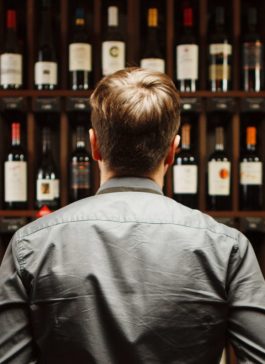In 1976 hield de Britse wijnhandelaar Steven Spurrier, samen met zijn Amerikaanse zakenpartner Patricia Gallagher, een wijnwedstrijd in Parijs. De wedstrijd behelsde de kwaliteitsbeoordeling van Californische wijnen (rood en wit) versus verschillende rode Bordeauxwijnen en witte wijnen uit de Bourgogne.
In Californië werd destijds al heel behoorlijke wijn gemaakt, maar zouden deze wijnen even voortreffelijk smaken als een Franse topwijn? Gallagher meende van wel. Spurrier had zo zijn twijfels, maar zag de wedstrijd als een aardige publiciteitsstunt voor zijn handelswaar. De deskundige jury bestond, naast Spurrier en Gallagher zelf, uit negen alom gerespecteerde Franse wijnkenners, onder wie Odette Kahn, hoofredacteur van de Revue du Vin de France. Het jaar 1976 was niet geheel toevallig gekozen. Dat was namelijk tweehonderd jaar na de Amerikaanse onafhankelijkheidsverklaring. Spurrier en Gallagher nodigden veel pers uit, maar geen Franse krant zag een verhaal in de wijnwedstrijd. Slechts een enkele verslaggever van TIME Magazine kwam opdagen (Taber, 2005).
De wijnen (tien wit en tien rood) werden blind geproefd. De
